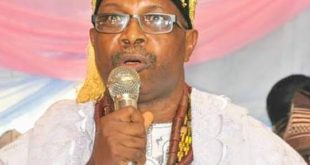Billionaire Aliko Dangote has alleged that international oil companies refused to sell crude oil to his refinery because they did not want him to succeed.
Dangote also recalled that he was once persuaded by a former Minister of Energy in Saudi Arabia, Khalid Al-Falih, to shelve the idea of building a refinery. However, he said he told the former minister that he did not need his advice.
“Four years ago, I was in Saudi Arabia during the fasting period and I was invited for the breaking of the fast, Dr Falih, who used to be the Minister of Energy invited me to come and break the fast with him and I went there. He just said, ‘Aliko, I heard that you’re planning on building a refinery, what capacity?’ I said 650,000. He kept quiet for a while and said, ‘You know just about 120km from Mecca, we are building one and I think I would like you to go and have a look.
We as Saudi Aramco, are facing a lot of challenges and, we are proceeding with it, but my advice to you is not to do it because normally, refineries are built by major oil corporations or sovereign countries.’
“I said, ‘But Your Excellency, unfortunately, we have already started, so I’m not looking for am advice.’ That was really how we continued,” he recounted.
Dangote revealed that both local and international cartels, which he described as “mafia”, made repeated attempts to sabotage the $19bn refinery project located in Lagos.
“Well, I knew that there would be a fight. But I didn’t know that the mafia in oil, they are stronger than the mafia in drugs. I can tell you that. Yes, it’s a fact,” he said.
Dangote, who described himself as a fighter, said they tried all sorts to stop him.
“As a matter of fact during the COVID period, some of the international banks were looking forward to making sure that they push us into default of our loans so that the project will just be dead. And that didn’t happen with the help of banks like Afreximbank,” it was stated.
He explained that he had paid off $2.4bn of the $5.5bn loan for his $19bn Lagos-based refinery.
“We borrowed the money based on our balance sheet. I think we borrowed just over $5.5bn. But we paid also a lot of interest as we went along, because the project was delayed because of a lack of land, also the sand-filling took a long time. Almost five years or so we didn’t do anything.
“We started in 2018. We borrowed that much. We have, of course, paid interest and some principal, about $2.4bn. We’ve done very well. We now have only about $2.7bn left to be paid. So we’ve done very well for a project of that magnitude,” he said.
The Africa’s richest man explained that international oil companies denied him access to their crude because they did not think he could succeed with the 650,000 barrels per day capacity refinery.
“In a system where, for 35 years, people are used to counting good money, and all of a sudden, they see that the days of counting that money have come to an end, you don’t expect them to pray for you. Of course, you expect them to fight back.
“And I think that is the process that we’re now really going through. But the truth is that, yes, the country, the sub-region, and also the continent, of sub-Saharan Africa, need this refinery. So, you expect them to fight through non-supply of crude, non-purchase of the product, but I think it’s all temporary. We’ll get there,” he added.
Dangote has been importing crude oil from the United States to get feedstock for the refinery.
The billionaire alleged that international oil companies refused to sell crude oil to his refinery because they did not want him to succeed.
Dangote also recalled that he was once persuaded by a former Minister of Energy in Saudi Arabia, Khalid Al-Falih, to shelve the idea of building a refinery. However, he said he told the former minister that he did not need his advice.
“Four years ago, I was in Saudi Arabia during the fasting period and I was invited for the breaking of the fast, Dr Falih, who used to be the Minister of Energy invited me to come and break the fast with him and I went there. He just said, ‘Aliko, I heard that you’re planning on building a refinery, what capacity?’ I said 650,000. He kept quiet for a while and said, ‘You know just about 120km from Mecca, we are building one and I think I would like you to go and have a look.
We as Saudi Aramco, are facing a lot of challenges and, we are proceeding with it, but my advice to you is not to do it because normally, refineries are built by major oil corporations or sovereign countries.’
“I said, ‘But Your Excellency, unfortunately, we have already started, so I’m not looking for am advice.’ That was really how we continued,” he recounted.
Dangote revealed that both local and international cartels, which he described as “mafia”, made repeated attempts to sabotage the $19bn refinery project located in Lagos.
“Well, I knew that there would be a fight. But I didn’t know that the mafia in oil, they are stronger than the mafia in drugs. I can tell you that. Yes, it’s a fact,” he said.
Dangote, who described himself as a fighter, said they tried all sorts to stop him.
“As a matter of fact during the COVID period, some of the international banks were looking forward to making sure that they push us into default of our loans so that the project will just be dead. And that didn’t happen with the help of banks like Afreximbank,” it was stated.
He explained that he had paid off $2.4bn of the $5.5bn loan for his $19bn Lagos-based refinery.
“We borrowed the money based on our balance sheet. I think we borrowed just over $5.5bn. But we paid also a lot of interest as we went along, because the project was delayed because of a lack of land, also the sand-filling took a long time. Almost five years or so we didn’t do anything.
“We started in 2018. We borrowed that much. We have, of course, paid interest and some principal, about $2.4bn. We’ve done very well. We now have only about $2.7bn left to be paid. So we’ve done very well for a project of that magnitude,” he said.
The Africa’s richest man explained that international oil companies denied him access to their crude because they did not think he could succeed with the 650,000 barrels per day capacity refinery.
“In a system where, for 35 years, people are used to counting good money, and all of a sudden, they see that the days of counting that money have come to an end, you don’t expect them to pray for you. Of course, you expect them to fight back.
“And I think that is the process that we’re now really going through. But the truth is that, yes, the country, the sub-region, and also the continent, of sub-Saharan Africa, need this refinery. So, you expect them to fight through non-supply of crude, non-purchase of the product, but I think it’s all temporary. We’ll get there,” he added.
Dangote has been importing crude oil from the United States to get feedstock for the refinery.
 YouNewsng Discover. Succeed. Enjoy
YouNewsng Discover. Succeed. Enjoy







